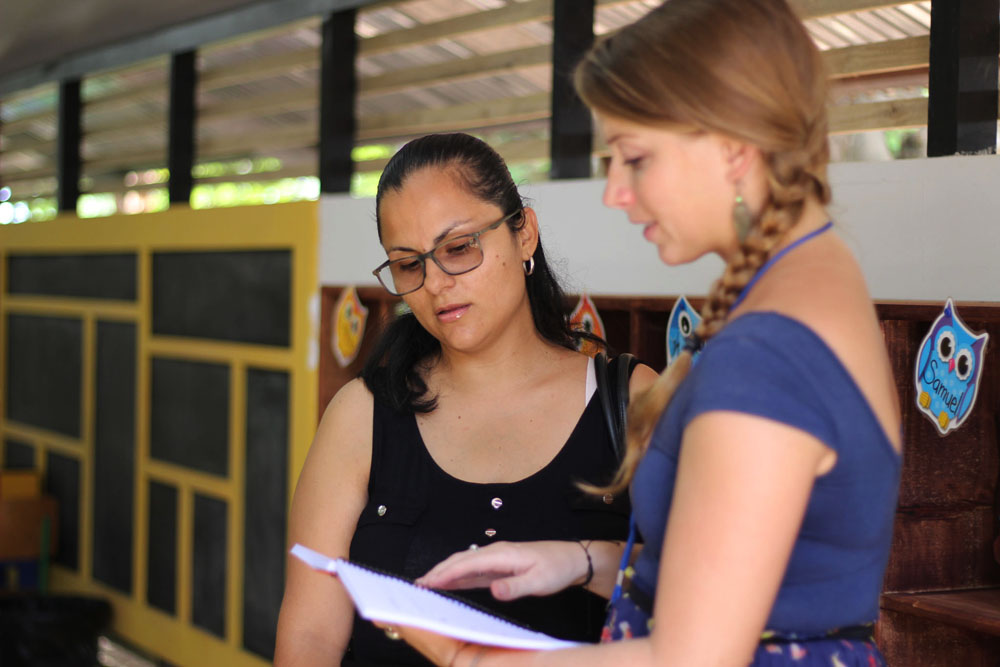
by David Brookshire, MPH/ School Counselor & Special Education Case Manager | Apr 17, 2018

As we come to the close of the first trimester and parent teacher conferences are approaching, I’m reminded of my first parent conference as a parent. Quite honestly, I remember being a little taken aback by some of the numbers. How could someone not see my child as the glowing beacon of academic prowess that I saw him as? Sure, there were several subjects with high grades but what about the 2 or 3 that were lower than the rest? Certainly, there must be a mistake, a misunderstanding, or….could this be a direct attack?!? I joke, but I think this is probably a common experience for us as parents. Even though most of our students function quite well academically, everyone has their own strengths and challenges. When challenges arise, I think it often comes down to how we interpret feedback, how we conceptualize growth and success, and how we communicate that to our children.
This presents several opportunities, doesn’t it? It ‘s an opportunity to discuss personal strengths and challenges. It’s an opportunity to realize that we all function differently in different environments and therefore relate differently to different people. And, it ‘s an opportunity to incorporate a growth mindset as we examine our perspective about what it means to succeed or fail. All of these opportunities, when seized and used to frame discussions with our children, help us all to be well-rounded learners that adapt to various environments and thrive.
It’s quite reasonable to expect that each individual has their strengths and their challenges. As a result, it would be surprising if everyone was automatically perfect and exemplary at everything they attempted. In my experience, it can be helpful to focus on a child’s strengths in order to help them tackle something that might be more difficult. It’s common to face difficulty or challenge throughout life and learning tools and strategies to solve difficult problems can really help kids build confidence and increase their level of independence. For example, if one of my child’s strengths is creativity, I can use that as a guide for how to help him use creativity to solve problems or ask for help. If someone is naturally curious, we can help them harness their curiosity in more challenging situations to explore possible solutions. If a student is naturally persistent in some settings, we can help them use their strength to persist in other settings. Helping kids identify their strengths can be a really run and rewarding conversation for both us as parents, and the child as they learn about themselves and develop self-awareness.
As for a growth mindset, when we emphasize the importance of practice as the key to acquiring skills, it makes it easy to recognize that when lower scores in a certain subject occur, it simply signifies the need for more practice and maybe some extra help. It’s an opportunity to seek and incorporate feedback from a teacher and learn new ways to achieve our goals. Setbacks or challenges in learning provide an opportunity to see things in a different way and achieve deeper levels of understanding. With an emphasis on participation and effort, it’s relatively easy, at Futuro Verde, to get the help needed from teachers when there is a situation requiring more attention. Generally speaking, most students function within the range of optimal learning. And, with the notion that “it takes a village to raise a child,” we all work together for the healthy growth and development of the child.
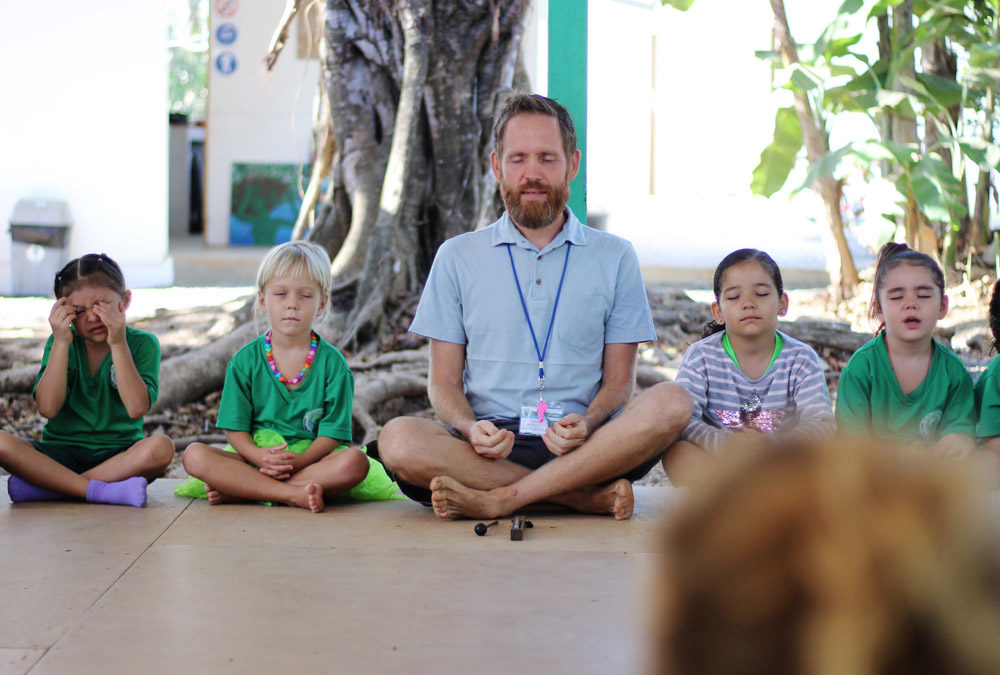
by Noelia | Mar 26, 2018
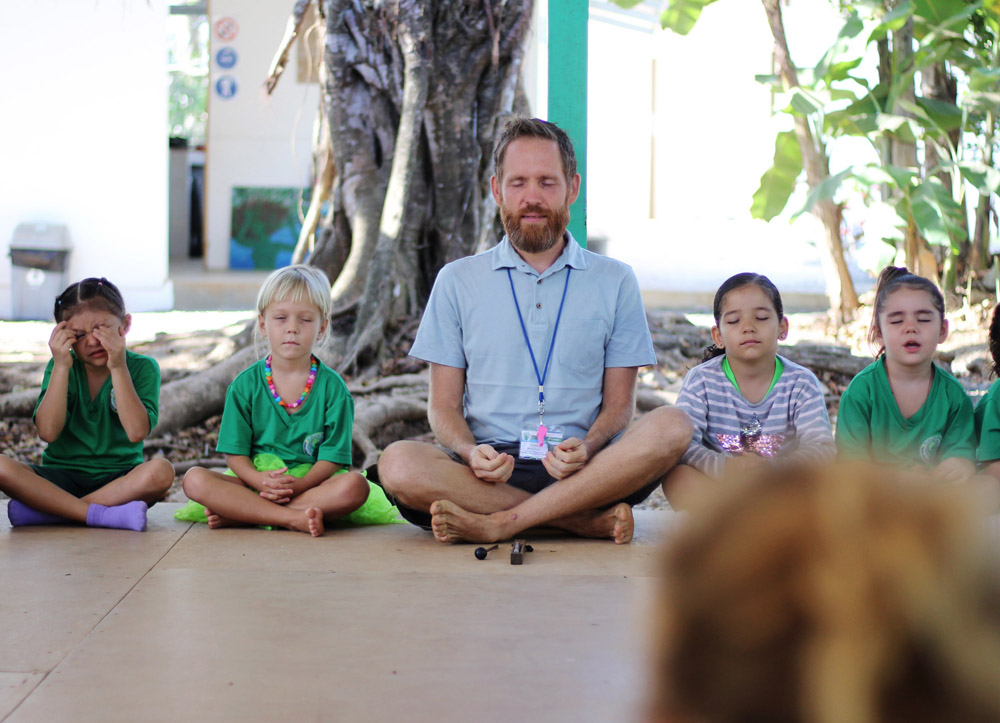
During the month of April, we are exploring what it means to be knowledgeable. According to the IB Learner Profile, we define knowledgeable as:
“We explore concepts, ideas and issues that have local and global significance. In so doing, we acquire in-depth knowledge and develop understanding across a broad and balanced range of disciplines (IB 2017).”
Having discussed the other values in previous months, we know that prior exploring the concept of being knowledgeable, we learn about what it means to be a good inquirer. Prior to practicing inquiry, we discuss as a school community what it means to be a healthy risk taker. When examined in sequence, we realize the way each concept relates to one another. By approaching new situations with courage and forethought, we take healthy risks that push us outside of our comfort zone, allowing us to learn and grow. This process facilitates inquiry as we develop natural curiosity and skills while enjoying the learning process. By practicing taking health risks and building the skill and curiosity of inquiry, we naturally become more knowledgeable.
At Futuro Verde in addition to academic knowledge, students also gain knowledge through experiential learning social-emotional learning. Whether practicing mindfulness or learning about different values, students gain insight into building character. This gives them a well-rounded perspective as they learn to relate to themselves and others around them. Each week at Peace Practices, these values are reinforced with activities as we come together as a school community. This is a fun and interesting way to integrate knowledge with experience as they build their own understanding of who they are in the world. A great way to reinforce this at home as to ask students what value they are learning about this month. If they can tell you about the weekly activities and how it relates to the value of the month, it shows that they are really integrating the concepts and becoming more knowledgeable about themselves and the values we practice as a school.
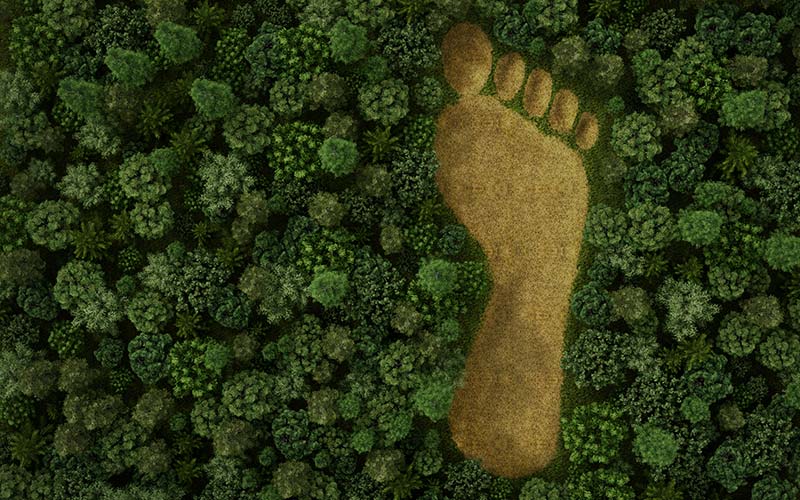
by Javier Sánchez Cáceres | Mar 22, 2018

Climate change is a significant change to our Earth´s temperature caused mainly by human activities in a relatively short period of time. More specifically, the increase of 1 degree celsius or more in a period of one to two centuries is considered global warming, and even an increase as slight as 0.4 degrees celsius over a hundred years is already significant. Interestingly enough, our planet would take thousands of years to warm or cool 1 degree celsius in a natural way.
In general, climate change is caused by anthropogenic factors such as cutting trees, burning forests, waterproofing soils, emitting greenhouse gases, among others. The greenhouse effect is the term used to describe the phenomenon of gases trapped in our atmosphere, such as carbon dioxide (CO2), methane (CH4), water vapor (H2O), thus contributing to global warming. Of all the aforementioned gases, carbon dioxide (CO2) has undoubtedly been portrayed as the main villain and its importance for life as we know it is yet unknown. The reality is that if it were not for CO2, and its ability to trap heat, the temperature of the earth would not be within comfortable limits to support life. Apart from the natural presence of carbon dioxide in the carbon cycle, human activities increase the presence of this gas, mainly due to emissions from the manufacturing and agricultural industries.
Although many people deny climate change, the evidence is clear. Below are some examples of the evidence collected by the scientific community:
- The temperature has increased about 1.4 F (0.8 C) since the end of the 19th century. Approximately 1.0 F (0.6 C) of this warming occurred in the past 30 years.
- An increase in sea levels of 3 mm per year has been observed in recent decades, associated with the thermal expansion of the sea.
- A 4% melt of the Arctic ice sheet per decade.
- An increase in the intensity of atmospheric phenomena, such as hurricanes, droughts, rainfall, among others.
- Change in plant flowering and fruition times.
At Futuro Verde we contribute to the mitigation of climate change through environmental education and the implementation of specific initiatives focused on reducing our ecological footprint. Some of these initiatives are: beach and river clean-ups, reduction of solid waste, management of a collection center for recyclable materials and a composting program, among others. We encourage you to take small measures, which are the only ones that can help us fight this sad reality that we face as a species together with all other species on which we depend.
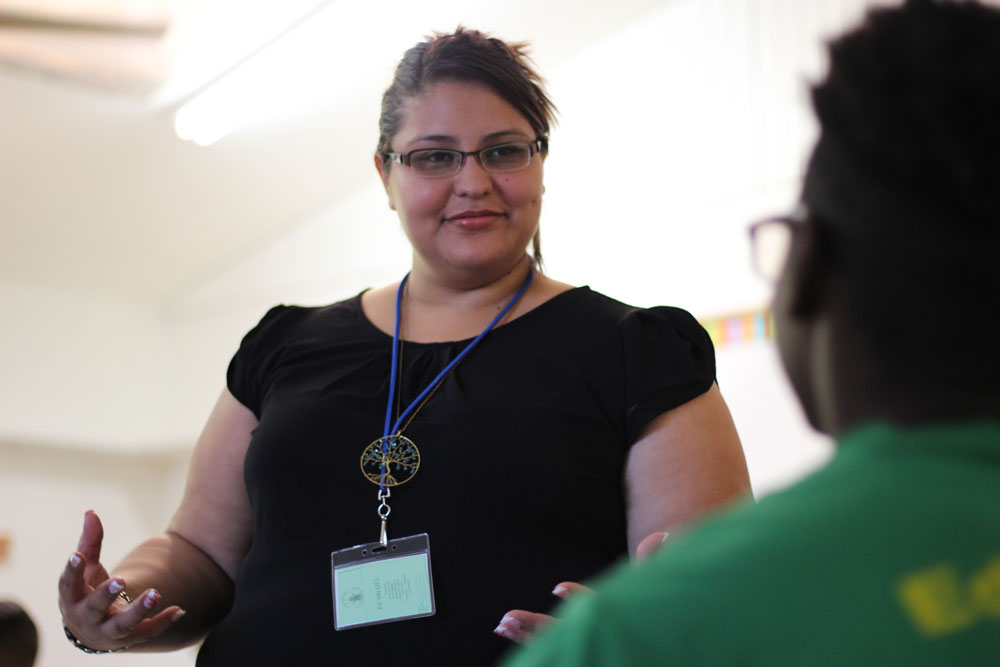
by Lural Ramirez | Mar 21, 2018

Did you know that Futuro Verde teachers actively collaborate with other educators across the country and the world? Futuro Verde prides itself on the understanding that we are not engaging in teaching and learning in a silo here in our corner of the peninsula. Our students this year come from 32 different countries or origin, our staff hail from 11 different countries and we are keenly aware that philosophies on education and theories on the very best way for students to learn varies drastically depending on the context in which you live and the educational training you have received. We open our minds and our school doors to input from other educators and educational contexts each and every day!
How does that happen, you might ask? Well, in so many different ways! For example:
- Our CAS teacher, Karol Madrigal, collaborates with the CAS teacher in Jersey, the Channel Islands, in order to unite our students with theirs in their Creativity, Activity and Service initiatives! She also guides students in service projects that directly impact both our local and global community.
- Our IB coordinator, Stuart Millar, maintains regular communication with other coordinators and IB educators across Costa Rica and the world as he strives to clarify policy, coordinate programming and seek out meaningful connections with other IB World Schools across the globe.
- Futuro Verde hosts an international education conference each year in June. BHS welcomes guest contributors to this conference from around Costa Rica and the world who come and share their expertise and knowledge related to Bilingual, Holistic and Sustainable education!
- When we have teacher changes at a given grade level or subject, we pride ourselves on our effective transitions- teachers collaborate before their departure, during the change over and after the new teacher has taken over the class. Curricular continuity is a priority at Futuro Verde!
- Do you remember former FV primary English teachers Eileen Waldschmidt and Shahnaz Sahnow, both of whom worked at Futuro Verde while on sabbatical from their teaching positions in the United States? They are no longer on site but both master teachers continue to stay meaningfully connected to the school through their support of current FV teachers, curriculum development and systems organization. Eileen, a co-founder of BHS, also continues to actively plan each year’s conference as a member of our conference leadership team.
- Lastly, several Futuro Verde teachers and administrators have established formal sharing agreements with schools, teachers and students at different schools and grade levels around the globe with pen pal programs, Skype calls and even student exchanges!
Part of the benefit of an international school is the opportunity to easily connect with other students, educators and schools around the world via our shared values and goals. We value the benefits these relationships bring and we encourage our families to support these important efforts by our students and staff!
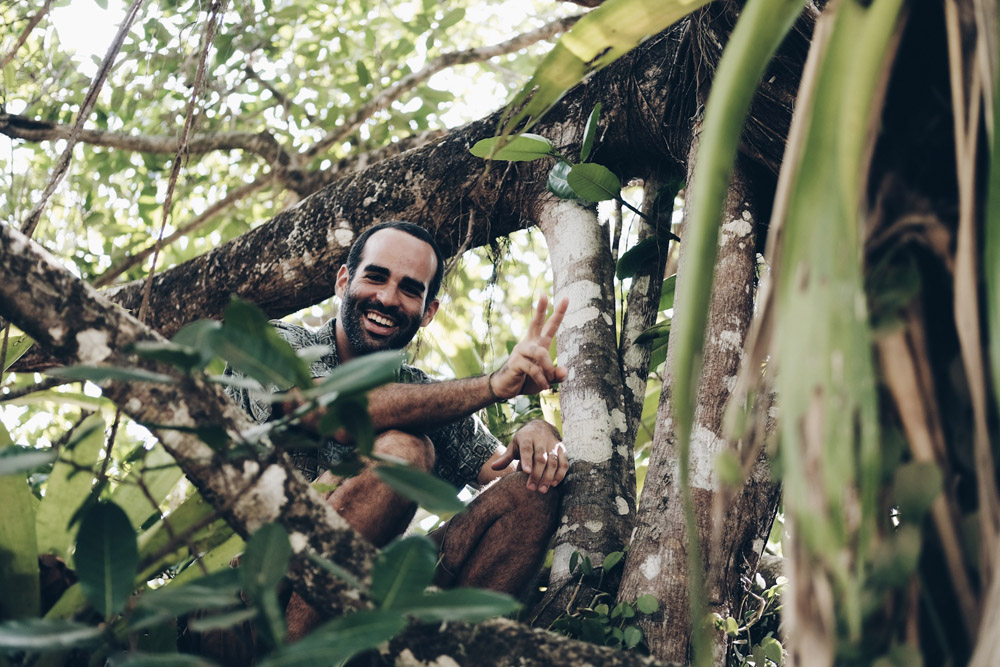
by Angie Briceño | Mar 15, 2018

On April 23rd we will be hosting our Earth Day Charity event.
What´s this day about?
It´s about supporting an organization involved in local environmental protection and conservation, in an unusual and fun way. The challenge will be to raise money for a chosen organization both before and during the day of the event, with the participants spending the day up in a fig tree until they manage to collect $ 1,000 for their cause by reaching out to their connections through the internet and social media in order to promote the event. The participant(s) who reach the $ 1,000 goal before 2:30 pm on April 23rd, may come down from their tree. In addition, the first three participants will be able to donate the money raised to the organizations they chose to support. The rest of the funds raised will be used to invest in expanding Futuro Verde’s sports facilities. In 2017, we raised $ 6,093 and the beneficiary organizations were: Green Wave, ASOPROLAPA and Nicoya Peninsula Waterkeepers. The rest of the money was used to purchase 7 new computers for the multimedia center.
If you wish to participate, we invite you to investigate and find an organization that you would like to support next April 23rd, Earth Day. Don´t miss out on Earth Day!
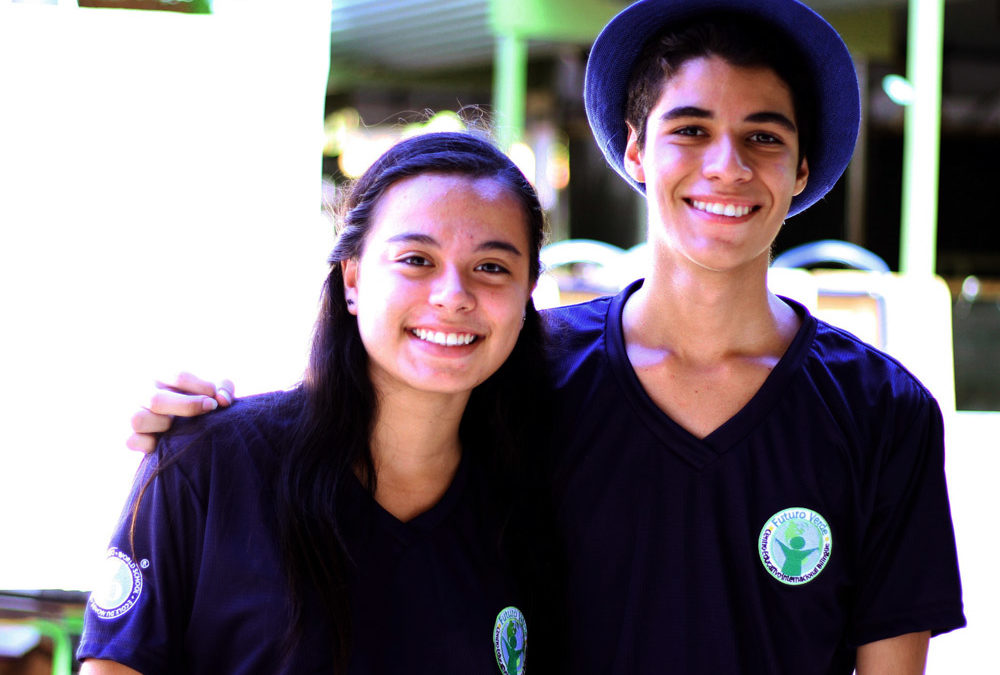
by Stuart Millar, IB coordinator | Mar 15, 2018

Futuro Verde graduates of 2017, Derlin Dilana Campos and Elian Gonzalez, returned this year to join our first International Baccalaureate Diploma Programme class. We asked them to reflect on their experience so far.
2018 is Futuro Verde´s first year as an IB World School. The IB Diploma Programme provides ample opportunities that open many doors to a higher education, besides being intellectually stimulating.
Last year, at the end of the 2017 school year, we were offered the opportunity to be part of this program and continue studying at Futuro Verde for an additional two years while receiving a better, more holistic education that will prepare us to face global challenges.
IB classes are notably different from MEP classes. We can notice a change in how and what we are learning. Classes are more interactive and we participate more in discussions. The main focus is on acquiring useful information that helps us analyze our surroundings and develop critical thinking.
I would say that time management has proven to be our biggest challenge because IB means more homework and projects, which can be difficult to complete if you are not good at organizing your time.
Despite the extra work, we feel excited about being back at Futuro Verde and receiving classes in the new and updated music and arts classrooms. Analyzing visual arts pieces or composing music means the world to us and inspires us to follow our dreams.











